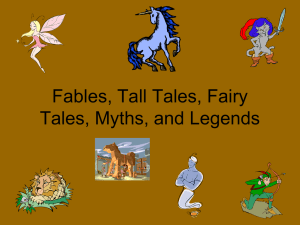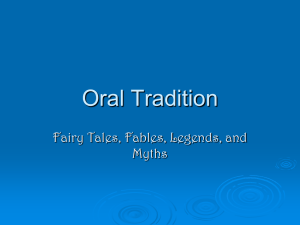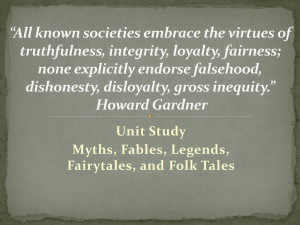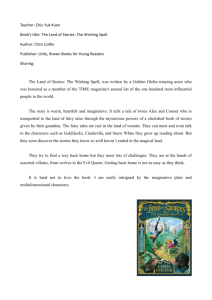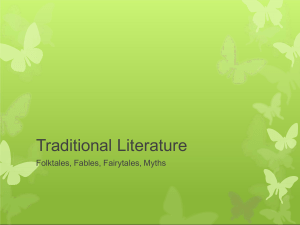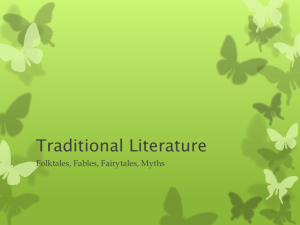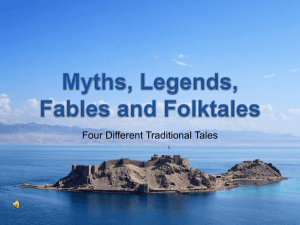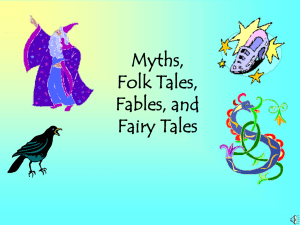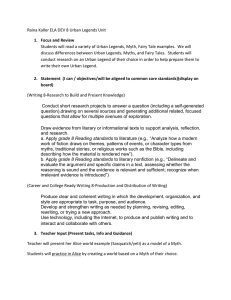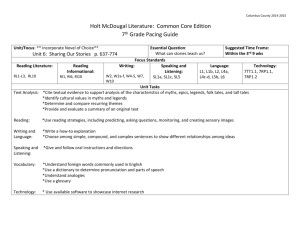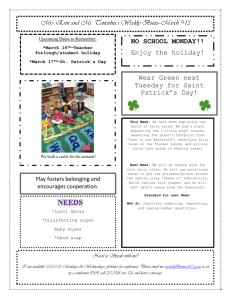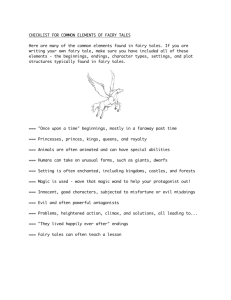Imaginative Literature
advertisement
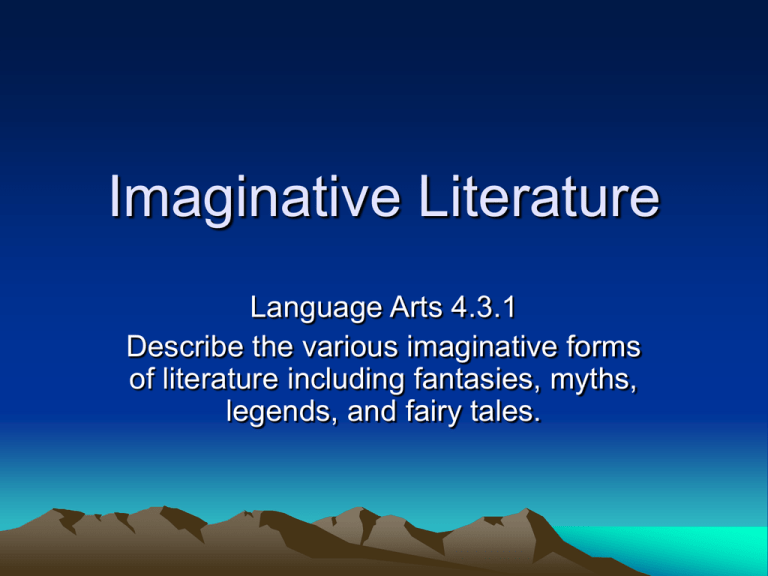
Imaginative Literature Language Arts 4.3.1 Describe the various imaginative forms of literature including fantasies, myths, legends, and fairy tales. What do fantasies, fairy tales, fables, myths, and legends all have in common? • Fiction • All have a part that could not happen in real life – Magic – Imaginary creatures – Talking animals Fantasy: fiction with imaginary or supernatural parts Fantasy Fairy Tales Fables Legend Myths Cinderella Snow White Tortoise and the Hare King Arthur Johnny Appleseed Greek Gods and Godesses Fairy Tales • A fictional tale with imaginary creatures and heroic deeds, usually written for children • “Once Upon a Time…” • “They Lived Happily Ever After” Fables • A short story with a moral or lesson – Usually use animal characters who act human (Remember the word “Personification” ) Aesop’s Fables Legends • An unproven story handed down from earlier times, sometimes believed to be historical by many. • Usually have a basis in the truth. Myths • A traditional story dealing with supernatural beings, ancestors, or heroes. It should explain how a culture thinks, explain nature, tell customs, or show the ideals of a society • Old stories that were handed down for years
